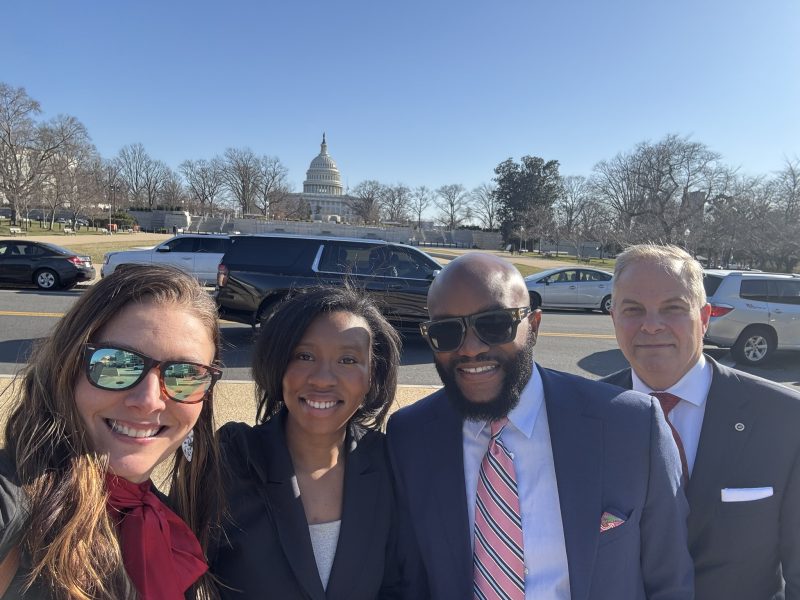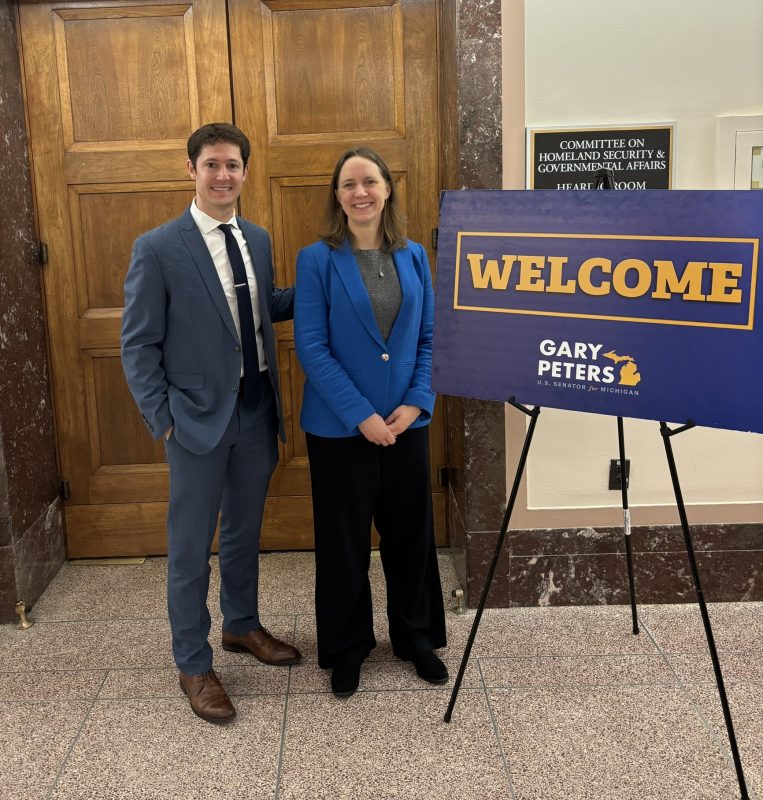Press Releases | Federal Investment
April 29, 2025
Updated Aug. 28, 2025 | Andy Barnes
From March-July 2025, the Clean Energy Business Network (CEBN) brought 49 small business leaders from across the country into 75 meetings with congressional offices to discuss the need to protect energy tax incentives and federal investments in energy innovation and modernization. These meetings were part of our broader effort to engage often unheard small business voices in the federal policy conversation and ensure federal policy supports the continued growth of America’s energy economy.
Working alongside our parent organization, the Business Council for Sustainable Energy (BCSE), CEBN made the business case for federal energy investments through:
These discussions took place amidst Congressional negotiations on a major tax reform package, the One Big Beautiful Bill Act (OBBBA), and particularly centered on the tangible, local impacts of federal energy tax incentives and urgent need to provide continued business certainty. Other topics included the benefits of continued investment in federally-funded research, development, and deployment in the appropriations process–along with the impacts of sudden impoundment or termination of some of these grants.
CEBN’s advocacy push brought together a powerful cross-section of the clean energy workforce—entrepreneurs, engineers, sustainability professionals, and cleantech manufacturers. These business leaders took time away from their operations to meet directly with lawmakers and staff to share how federal policies affect their ability to invest, hire, and innovate in their communities.
Throughout March and April, CEBN held a rolling series of “fly-in” and “dial-in” meetings; some businesses traveled to Washington, DC for meetings on Capitol Hill, while others held virtual or in-district meetings with their Congressional representatives. Then on June 11th, CEBN hosted a fly-in bringing 18 small business leaders to DC to meet with their congressional offices. These meetings focused on engaging Senate offices on tax reform and ensuring legislators understood the connection between energy tax credits and energy jobs, prices, and security.
Many of these fly-in and dial-in participants also engaged with the media, sharing their stories about the positive impact energy tax credits and other incentives have had on their businesses. They also continued to follow up with congressional offices during ongoing negotiations to share reactions to various tax proposals and anticipated impacts to local projects.

A central message from participants was the importance of preserving business certainty in the tax code. Energy projects often require long planning horizons, and any ambiguity or changes in the runway for existing tax policy can disrupt timelines, financing, and hiring.
Several entrepreneurs shared stories of how energy tax credits enabled them to expand their operations, secure new contracts, and pass savings on to customers. But current uncertainty about the availability of credits is halting the progress of some new projects midstream.
Underscoring this message, 272 businesses and trade associations from 43 states, representing more than $450 billion in revenue and 165,000 employees, recently sent a letter to Congress expressing strong support for the continuation of energy tax incentives. This follows on a prior letter in March signed by 214 business leaders noting, “Should the economic landscape change, small businesses with limited resources would be the most severely impacted.”
In addition to tax certainty, CEBN members expressed deep concern over federal spending freezes and delays in the disbursement of already-obligated funds. Many businesses, nonprofits, and state/local governments have been directly impacted by pauses or pending cancelation of their grants and contracts—creating ripple effects for local contractors and suppliers.
These freezes not only threaten ongoing projects but also erode confidence in doing business with the federal government going forward.
Participants in CEBN’s advocacy meetings urged lawmakers to protect funding from disruption and uphold commitments made through legislation like the Inflation Reduction Act and Bipartisan Infrastructure Law. In addition, 155 business leaders in our network have delivered nearly 600 messages to congressional offices conveying the direct impacts of these funding freezes.
Throughout these meetings, CEBN members emphasized that clean energy isn’t a partisan issue—it’s a business and jobs issue. These entrepreneurs hail from across the country. Whether operating a solar installation company in rural Texas, a geothermal startup in Colorado, or a manufacturing plant in Michigan, they all rely on stable federal support to serve their customers and grow their companies.
These business leaders conveyed the direct connection between preserving energy tax credits and stable funding streams and the impacts on the ground in their communities in terms of economic activity, family-sustaining jobs, and meeting rising energy demand.

We are grateful to all business leaders who participated in our congressional advocacy meetings to defend federal energy incentives and funding. Highlighting the voices of small businesses and sharing their personal stories and data helped validate the on-the-ground impacts of these investments.
The One Big Beautiful Bill Act (OBBBA) was signed into law on July 4, 2025, making a number of changes to energy tax credits (please visit our Tax Package Resource Center for a detailed overview). Although the end result was a step backwards for many energy sectors, it was clear that business voices made a meaningful difference in strengthening the legislation as it proceeded through congressional negotiations. Several key energy credits (e.g., geothermal, hydro, storage) were spared from rapid elimination, while the credits for wind and solar received a one-year runway to start construction in order to claim safe harbor. The bill also included a full and permanent restoration of the Sec. 174 R&D credit, with a small business carveout providing retroactive relief through 2022. These efforts also secured state and local media coverage, which is key to the longer-term effort to combat misconceptions about clean energy technologies and showcase their importance to local economies and energy security.
CEBN will continue to elevate small business voices and work toward bipartisan, common-sense approaches for creating stronger, more resilient clean energy economy. Want to get involved in future advocacy efforts? Join our email list to stay in touch.
***
Participant Perspectives:
Tony Ruffine, Principal, New Energy Venture Associates—“CEBN helped me meet in person with congressional offices on both sides of the aisle to thank them for their leadership defending the energy tax credits. I discussed how my firm is leveraging these credits to finance RNG, solar, wind, and storage projects that will employ hundreds of people across the nation. These congressional leaders were previously unaware of our projects but seemed excited about our impact on jobs and affordable energy in their districts.”
Scott Ringlein, Founder and Chief Strategy Officer, Energy Alliance Group—“Preserving the energy tax credits is the right thing to do and it’s just good business, keeping millions employed and supporting small businesses. As a clean energy project developer, access to and utilization of these tax credits is the pathway to adopting clean energy technologies and reducing our clients’ energy expenses.”